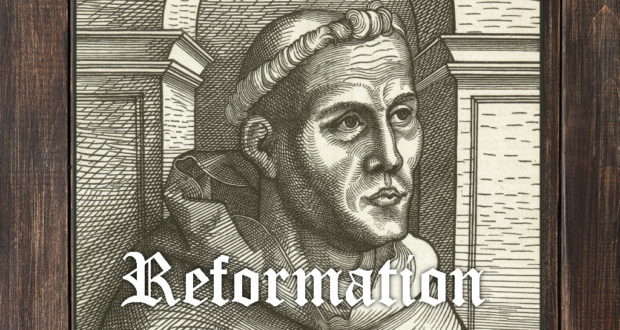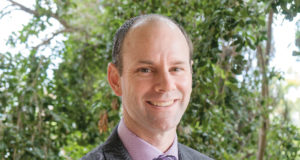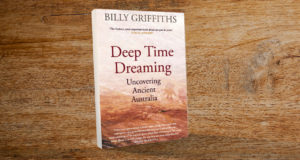In 1517 Martin Luther nailed his 95 Theses to the door of a church in Wittenberg, Germany and the rest, as they say, is history. Luther’s call for debate on the faith would lead to the Reformation which shook the very core of European thinking on religion, politics and culture. To commemorate the 500th anniversary of the Reformation Dr Janice McRandal explores the Uniting Church after 40 years and Luther’s Reformation after half a millennium.
500 years / 40 years
“It strikes me that this may be one of the differences between youth and age: when we are young, we invent different futures for ourselves; when we are old, we invent different pasts for others.”
The Sense of an Ending, Julian Barnes.
Infatuated as he is with time, the English novelist Julian Barnes frequently reflects on memory, history, narrative, and meaning-making, drawing attention to the muddled truths that spill out in the accounts of ourselves and our histories.
I am mindful of this inevitable scrambling as we mark time together as a church: 500 years since the 95 Theses and 40 years since the formation of the Uniting Church in Australia.
We are registering the passage of time, counting significant moments of the continuous, but always uncertain march of history. Just what have we gathered to do? Invent a future? Invent a past? Perhaps both at once?
The Uniting Church is a relatively young ecclesiological experiment, a repetition of the past into an unknowable but hopeful future, an inheritance of the past that won’t let the past remain simply what it was.
At its best, the Uniting Church is discovering itself ever anew, not because it shuns the past, but because it invites the past into a pilgrim cadence, a way of walking, or perhaps dancing, through time, in response to the call of the pilgrim Jesus who moves in history in “his own strange way”.
And so gathering to think about the time of the Uniting Church, we cannot help but think theologically about time, about the sense of time we have inherited from the past, and about the sense of time we are discovering, or creating, or inventing, together.
It is in Luther that we find the emergence, or at least reinvigoration, of the category of expectancy: the idea that faith orients itself to what is coming rather than to what is discernibly present. Faith does not see what is coming, it cannot anticipate or calculate what is coming, but it holds itself open to the future with a trust that feels out its way in the dark.
“Justification by faith alone” carries a logic of temporality. At present, we are sinners without any hope of securing our own righteousness. Any future extrapolated from this present is a future in which we remain sinners. What then justifies a hopeful movement through time?
Faith alone does. That is, faith entrusts itself to a future in which we will always have been the beloved children of God, even when we were sinners. There is no rational ground for this trust. It does not grow out of any “natural order of things”. It calls for a naked readiness to be embraced by divine mercy despite everything. For those who live with such readiness, a radical freedom is born, the freedom to love and serve without the anxiety of securing a future we can see, or that we have earned.
Luther puts such expectancy—or faith—to “work” against the kind of metaphysical gestures that attempt to construe the life of faith as a process of accumulated merit. Put in terms of temporality, Luther refuses any future extrapolated from any present state of things, or of their native potentiality.
This is not without problematic applications, not least of which is Luther’s conception of the two kingdoms, or two temporalities, which fuelled his opposition to the peasant revolts of his time. Luther found in such revolts a problematic overturning of the law that must, he thought, structure political and economic life in the present evil age.
He was unable to hear the Gospel in the peasants’ demands for a new world. But despite its problematic applications, we can say that the Reformation sees a reframing of time along eschatological lines. The movement of faith is timed or rhythmed by expectancy. Faith moves by waiting for what it cannot secure or construct and for what it will not possess. Faith works by trusting a future that arrives only as a gift.
For the Uniting Church in Australia, from the establishment of the Joint Commission on Church Union and right through to the present day, a clear eschatological lens has shaped the church’s sense of time.
I often think of this as a kind of a mystical and apophatic eschatology, an eschatology more engaged with the promise of a new, extraordinary reality of divine union rather than with the anticipation of a content-filled future. Our language in the Basis of Union marks such a posture:
“The Church lives between the time of Christ’s death and resurrection and the final consummation of all things which Christ will bring; the Church is a pilgrim people, always on the way towards a promised goal; here the Church does not have a continuing city but seeks one to come.” (Basis of Union Paragraph 3)
It is a theology of eschatological patience that shapes the Uniting Church’s sense of calling as a pilgrim people, a theology that waits, a theology that suffers its own in-completion. Such in-completion and the apophatic patience that nourishes it is embodied in a commitment to abide together in the most patient ways.
This patience is not an abstracted virtue but eminently practical, written into all our forms of governance, even down to our manual for meetings. Whereas worldly eyes might look upon such patience as a form of foolishness, the eyes of faith see the practice of such patience as the dance of a strange, difficult joy, the joy of gathering around what cannot be possessed or lodged in us, the joy of a gift that does not become a possession.
And yet, as we’ve moved toward marking and celebrating our 40 years together, time has come to be marked by urgency in the Uniting Church: a sense of confusion about mission. We seem to have replaced our theology of patience with an ideology of panic.
“It has been 40 years so shouldn’t we have some momentum by now?”
I am not sure that 40 years should mean what it seems to mean to many in the Uniting Church, because for us it has always been eschatology that holds all things together. What would it mean for the church to resist the temptation of impatience, of knowing itself and a world too quickly?
Perhaps we need to think of eschatology as an art: the art of patience, a patient art. As Julian Barnes suggests in his most recent novel, “Art is the whisper of history, heard above the noise of time.”
Schism / Union
Saint Augustine once said that “there is nothing more serious than the sacrilege of schism because there is no just cause for severing the unity of the Church”. It’s a statement found in Augustine’s letter against the Donatists, a group that, along with many others, remind us that there was never a time in the church when something like “schism” was not present.
Schism is at its heart a question of difference, or a question of how we, especially those of us who always already hold considerable power, might hold difference.
When we speak of difference today, our thoughts lean toward discourses of subjectivity and debates around the position and experience of the other. Such categories did not exist for the reformers, and the theological antagonisms at the time presumed a kind of inability to abide difference, that is, ironically, alien to our ears. In other words, I’ve already entered into an anachronism when I think through the reformation schism through the lens of difference. And yet we can’t escape it.
In my early years in theological college, I was shown one of those uninspiring charts that seek to graphically outline the now many Christian denominations. Some have the count over 3000. “Blame the reformers”, we confidently declared, without even a hint of self-deprecation, as only the young can. Clearly the reformers, and above all Luther, did not seek out something like schism, but what eventuates in denominationalism is indeed an attempt obliterate difference, ironically, by proliferating it.
From 95 theses, to the Scots Confession of Faith, the Heidelberg Catechism, the Westminster Confession of Faith, the Savoy Declaration, to something like 3000 nuanced, tweaked, and occasionally ravaged confessions of belief, we can trace from the reformers an unending schismatic impulse to define one body over and against another. Schism. Denominationalism. An insatiable human need to annihilate difference on the level of propositional epistemology. It is of course a doomed project—as if language could ever give itself over to that kind of stability or sameness.
It impossible to say, and in my mind pointless to argue, that the countless schisms that occurred in the wake of the reformation were simply bad, the aftershocks of a movement that was itself tainted from the start. And yet very few of us did not welcome, did not celebrate, the movement of ecumenism that swept the globe in the 20th century.
It is this wave that the Uniting Church in Australia rode, and one in which the oneness of the church was being re-imagined. There is a strong sense that from the time of the Joint Commission on Church Union, the Uniting Church in Australia was being framed as a body that must refuse the all-too-easy posturing: Schism was bad! Schism was good! No. At the time of union, such a righteous view-point, a view from eternity, if you like, that tries to abstract itself from the long mess of broken relationships, was not going to help any-body. Perhaps schism and union are not exclusive terms anyway? Certainly if we think in terms of relationality, such a simple binary is not helpful.
But what is interesting is how the Uniting Church went about defining itself a body. This movement of ecumenism produced something like the Basis of Union, a document that throws out the propositional numbering (confess these 40 exact ideas and you, too, can be one of us!) and instead turns up with an absolutely historicized confession of Christ crucified. It’s a colourful, imaginative, very roomy document that unsays more than it says. Not a creed. But an event of faith that finishes with this: ‘The Uniting Church prays that, through the gift of the Spirit, God will constantly correct that which is erroneous in its life, will bring it into deeper unity with other Churches, and will use its worship, witness and service to God’s eternal glory through Jesus Christ the Lord. Amen.”
If schism is marked by futile attempts to control language and define sameness through knowledge, unity is to be marked by un-mastery, and through un-sayable differences. Unity, then, is not a theological statement, it’s more like a prayer.
Calvin and Wesley / Bonhoeffer and Barth
It might seem hard to trace the influence of Luther in the early documents of the Uniting Church—probably because he is not there. Well, not directly, at least. We know that Bonhoeffer and Barth are there, which means that Luther is there too, in a mediated form. And while the Uniting Church in Australia has had a lot to say about Bonhoeffer and Barth over the last forty years, they are not the men that are first recalled in the Uniting Church. In the Basis of Union, it is largely John Calvin and John Wesley who are pointed to.
Though Calvin himself is not mentioned in the Basis of Union, the inclusion of Reformation witnesses (each of the texts inspired by Calvin), along with the mention of Wesley, give us some clue to the kind of influence that many of the forming members of the Uniting church hoped we’d hang on to.
Indeed the church commits to “study these statements” into an unknown future. I came to the Uniting Church from the broader Methodist tradition, and after becoming a member of the Uniting Church, I wondered what had happened to Wesley, a figure barely evoked in current theological discussion. I’ve since realized that the same thing could probably be said about Calvin (and we should include John Knox here, too). It’s interesting, then, that where we perhaps find these two figures most prominent theologically, is in the liturgical life of the Uniting Church—Calvin in the doctrine of real presence, and Wesley, and his brother, in the hymns of the church. It’s an influence felt most keenly in liturgical formation, perhaps pointing itself to a particular interpretation and taking up of the reformation, one that finds its deepest import on the level of the liturgical life and not on the level of dogmatic content per se. If Calvin and Wesley continue to influence us, it’s an influence made present as we break bread together.
In the decade before Union, the members of Joint Commission on Church Union looked again to European men for influence, only this time it was their contemporaries. Traces of Dietrich Bonhoeffer and Karl Barth are visible all over the pages of our early documents, especially in The Faith of the Church and the Basis of Union. The Christocentric framing of our ecclesiology might bear some resemblance to the theologians of the reformation, but it’s a thin straight line to the kind of Bonhoeffer/Barthianism that was taking over the theological world in the mid twentieth century. I have been mostly comfortable with the influence of Bonhoeffer and Barth in the life of the church, but I can see and I know that this is not true for all in the Uniting Church.
And of course, I know that the matter of influence is always gendered. I have yet to meet a single theologian whose primary influence when named is not a man. Maybe sometime in the future, if there is anything like the Uniting Church in say 40 years from now, or in 500 years’ time in the church catholic, we might get together and remember the influence of a woman. Maybe.
Europe / Australia
“Soon Australia will be another name for Europe.”
Angela Carter
If I’ve failed to make anything clear so far, it is this: we are talking about a European Reformation, and one that occurred in a world largely unimaginable to us. As is always the case, context is everything.
The reformation was born within a period of intense, sustained inner conflict of European Christianity. But while there were seismic changes taking place in the scientific, economic, political, and technological world of Europe, there was a level of cultural normativity inconceivable to us today. And if we are happy to contend that the reformers were seeking to make significant changes to the identify markers of what we might call a Christian, or the church, I think we also have to concede that there were doing so in a way that would reify new norms for the church in Europe. The Reformation is an inescapably European project.
What, then, does it mean to carry on the legacy of a conflicted European Christianity in a colonised land? Or, what does Wittenberg have to do with Wagga Wagga?
The Uniting Church has, in some respects, made the movement of reconciliation paramount to its self-understanding and to its mission on this land. Within the ecclesial body, the church seeks to live out a covenanting relationship with the Uniting Aboriginal and Islander Christian Congress (UAICC), fostering “just, inclusive and equal relationships, [and] recognising the place of First Peoples in Australia”. Abiding in this fundamental relationship has not been without its challenges and tension, to which the conflict around the revised preamble of 2009 bears witness. The revised preamble itself touches on the tension of Eurocentric Christianity in Australia:
- Some members of the uniting churches approached the First Peoples with good intentions, standing with them in the name of justice; considering their well being, culture and language as the churches proclaimed the reconciling purpose of the Triune God found in the good news about Jesus Christ.
- Many in the uniting churches, however, shared the values and relationships of the emerging colonial society including paternalism and racism towards the First Peoples. They were complicit in the injustice that resulted in many of the First Peoples being dispossessed from their land, their language, their culture and spirituality, becoming strangers in their own land.
- The uniting churches were largely silent as the dominant culture of Australia constructed and propagated a distorted version of history that denied this land was occupied, utilised, cultivated and harvested by these First Peoples who also had complex systems of trade and interrelationships. As a result of this denial, relationships were broken and the very integrity of the Gospel proclaimed by the churches was diminished.
What kind of theological and ideological departures would a de-colonized Christianity demand of the still very Eurocentric church in Australia? We still have a lot to face up to in order to even ask that question. Call it a wilful ignorance: many of us simply refuse to see, and taste, and hear, and feel, how drastically different our contexts are to the Christendom of our tele-evangelised imaginaries.
It seems that the church in most respects is ill equipped to reimagine itself as a dispossessed body and take up the kind of kenotic witness signalled to in the Gospels. It’s not simply that we’re not in Wittenberg anymore, it’s that not one of us ever was.
Europe / Australia
The Uniting Church in Australia has often used the term “reformed and evangelical” to describe its lineage. These words are not without their own baggage: in many quarters, “reformed” signals a contemporary Calvinism that is marked by almost neurotic concern with normative masculinity and the need to enforce a Christian complimentarianism. “Evangelicalism”, too, is a term strained—not solely because of the connotations of a uniquely American evangelicalism, but also in the ways it is often reduced to positions on human sexuality.
It’s not surprising, then, that the Uniting Church has recently expressed self-consciousness about these terms. In a recent assembly document, we are reminded that reformed and evangelical are entirely “catholic” terms, reminiscent of Davis McCaughey’s words, “the Uniting Church must be particularly careful not to develop a terminology which suggests distinctive doctrines. We have no identity to separate us from the church of God.”
As the anniversary of the Reformation loomed, I have thought many times about what it might mean for the Uniting church in Australia to carry this heritage into an unknown future.
500 years/ 40 years. Schism / Union. Calvin and Wesley/ Bonhoeffer and Barth. Europe / Australia.
These twin anniversaries reveal continuity and disruption. It is an anniversary that compels us in the Uniting Church to say something–anything!–about where we stand in relation to such continuity and disruption. And yet there is no significant departure here in terms of the tradition. In their richest sense, the term “reformed and evangelical” has always signalled a willingness of the faithful to hold, and pray, and work within the space of such continuity / disruption. One word we have for this task is theology. The work of theology presumes that what animates the church’s life can never be stably lodged within it. Instead, it is faith-full expectancy for something like truth about both a past and a future, born of the paschal mystery. And it is precisely because theology is a hopeful task that it is always oriented toward an unknown future. If we inherit anything from the Reformation, surely it includes the ongoing call for each generation to enter into this hopeful work of theology, hoping that we, too, might be re-evangelized by the gospel, remembering that our language for faith is confessional, always on the way …
 JourneyOnline
JourneyOnline







